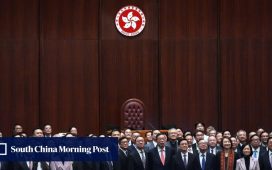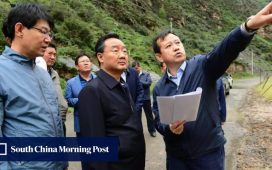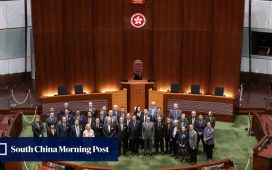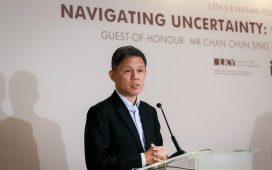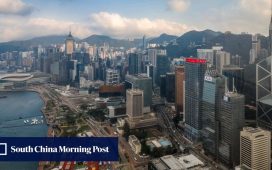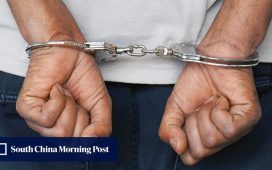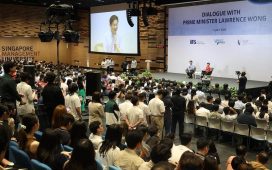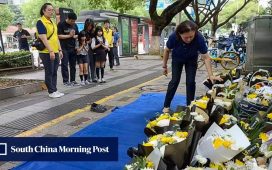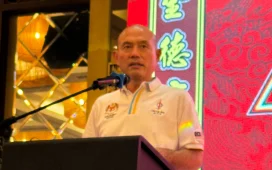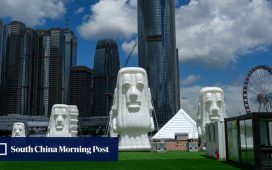“We have to urge more members of parliament to care about the topics of Hong Kong after the election and to make our voices heard,” added Lee, who lives in Sutton in south London.
About 144,400 visa holders had arrived in the UK by March after the British National (Overseas) visa scheme opened to applications in January 2021. Those settled in the country under the scheme will be able to vote in a general election for the first time.
Some recent immigrants from Hong Kong launched the V4HK campaign, designed to mobilise people from the city now settled in the UK to make their voices heard in the election.
Lee said his group had hosted at least 15 election forums in various cities which had captured the attention of Hongkongers.
“An election forum co-organised by V4HK in Sutton drew more than 100 Hongkongers …. they have actively raised questions to the six candidates,” he added.
Lee said questions ranged from the political to those involving the safety of Hongkongers living in the UK.
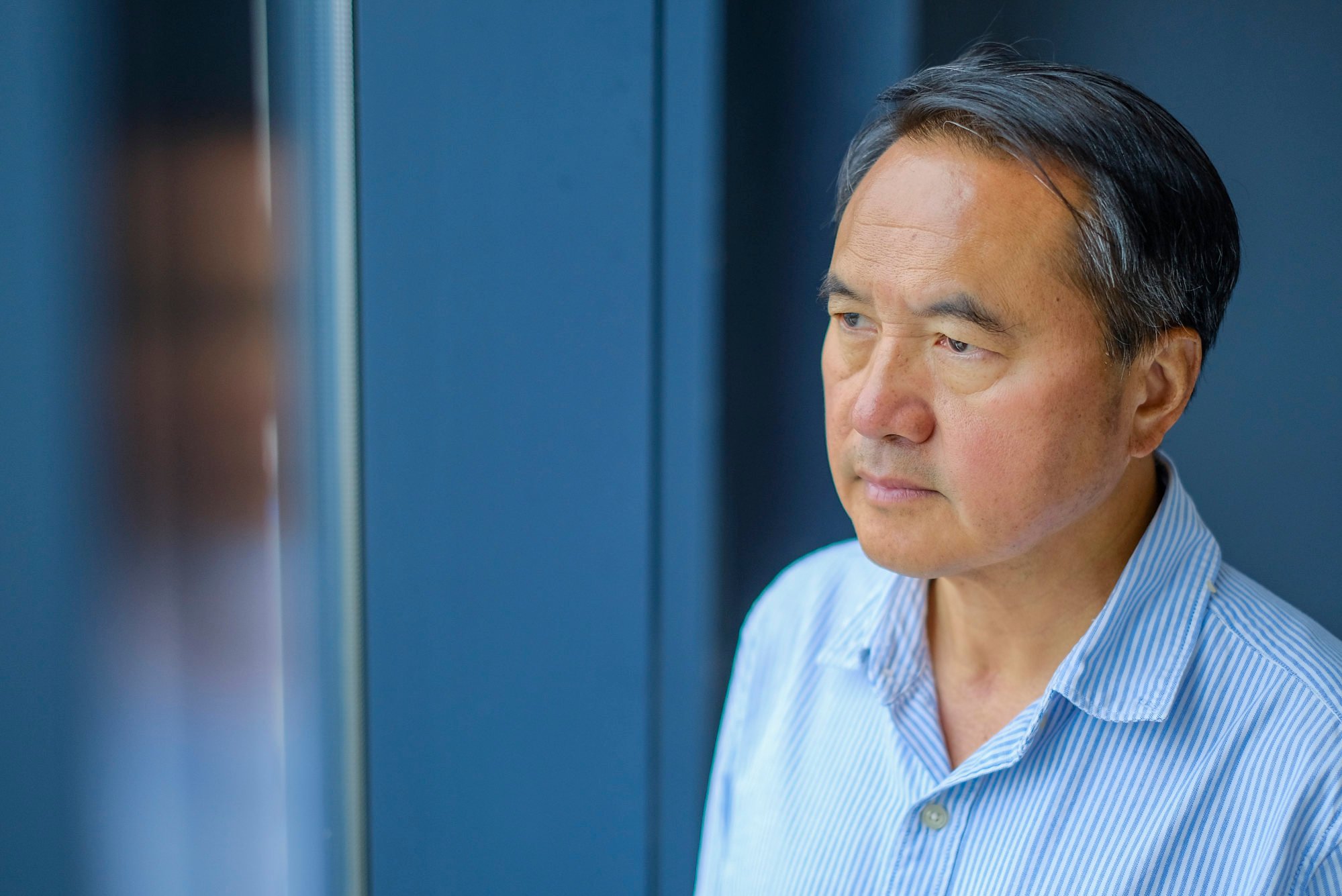
They also included questions about the extension of the scope of the BN(O) visa scheme and on fees for students, who are at present charged at the higher international rate before they acquire permanent resident status in the UK.
Lee said he was pleased to hear that at least four Hong Kong young people aged from about 20 to 30 planned to make their mark on the UK’s political life by standing as election candidates in the next five to 10 years.
“They have already joined political parties and are ready to pave the way for such a goal,” he added.
A V4HK online poll conducted from last November to January found 81 per cent of 1,220 respondents had already registered as voters and another 7.5 per cent planned to.
The survey results, revealed in April, also found 31.2 per cent of Hongkongers in the UK had no clear preference for a specific party and 13.4 per cent did not know who they would support.
Among those who indicated a preference, 20.8 per cent were most inclined to support the Conservative Party, followed by the Liberal Democrats on 15.9 per cent and Labour at 7.2 per cent.
The emigration pathway for Hongkongers was introduced by a Conservative government while Labour is odds-on favourite to triumph at the polls this time.
But Lee added he expected whichever party formed the next government would not end the BN(O) visa scheme.
He said Hongkongers had already made a significant economic contribution to the UK through home purchases and that the British in general were enthusiastic about migrants from the city.
Lee added the British saw Hongkongers as willing to work, friendly, educated and with good proficiency in English.
The Labour Party said Hong Kong humanitarian visas had provided important routes for people from the city to seek sanctuary.
“We will stand with and support members of the Hong Kong community who have relocated to the UK,” it said.
The Conservatives attacked China for what it called its disregard for universal human rights and its international commitments to Hong Kong and pledged to maintain visa schemes for people who wanted to leave the city.
The Liberal Democrats took a step further and vowed to continue to fight for BN(O) passport holders’ rights and more funding to aid their integration into the UK.
Benson Wong Wai-kwok, a former member of the Labour Party in Hong Kong and an ex-assistant political science professor at Baptist University, joined the Liberal Democrats in March.
Wong, who lives in Woking, about 40km (25 miles) southwest of London, has signed up to help the party candidate’s campaign in his area.
He said he expected that in constituencies such as Sutton, Wokingham and Colindale, which are all hotly contested and with large number of immigrants from the city, Hongkongers might be a critical minority vote.
“Some Hongkongers returning to Hong Kong in early July cared about the election a lot and they had already voted by post before departure,” he said.
V4HK also asked election candidates to sign a pledge for Hongkongers and fill in a questionnaire about their concerns.
The group’s website said about 50 candidates had signed pledges, provided answers to the V4HK questionnaires or had given statements of support.
About 4,500 candidates are vying for seats in the election.
The pledge bound candidates to support Hongkongers in the pursuit of freedom and democracy and to help in their settlement and integration in the UK, including people who used the existing BN(O) visa programme and those who asked for political asylum.
The questionnaire asked candidates for their stances in a variety of areas, including “tackling transnational repression” by the mainland Chinese and Hong Kong governments.
Candidates were also asked about their views on sanctions on mainland and Hong Kong officials said to be responsible for human rights abuses, improvements to the UK’s National Health Service and crime reduction.
In Sutton and Cheam, a constituency with one of the highest numbers of Hong Kong voters, Labour candidate Chrishni Reshekaron said the government should have done more to help Hongkongers who moved to Britain, especially with job-hunting.
Liberal Democrat opponent Luke Taylor admitted in the questionnaire that people from Hong Kong had problems with having their professional qualifications recognised by the UK.
Taylor said a satisfactory resolution to the difficulty could be a win-win situation for Hong Kong migrants and the country’s economy.

